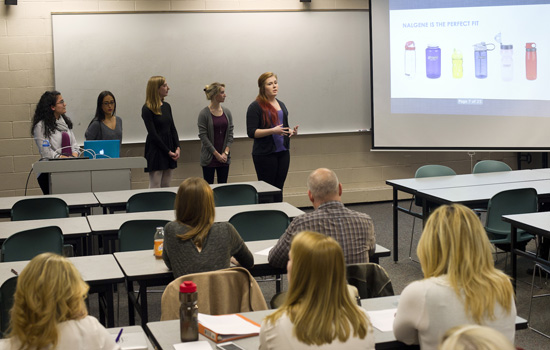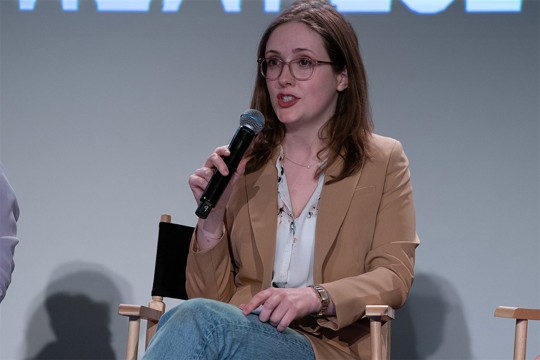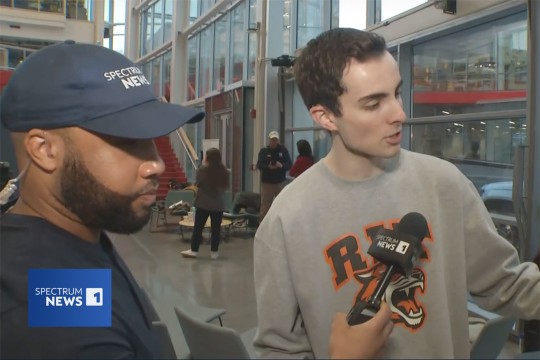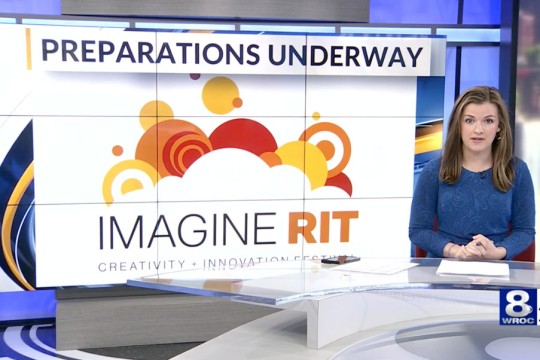Communication students pitch Nalgene ad campaign
They conducted research, developed slogans and strategies to help sell water bottles
Students learning how to pitch an advertising campaign don’t usually make it in front of the company’s marketing director on their first attempt.
But that’s what 19 students did this week for their capstone project in a 16-week campaign management class co-taught by Professor David Neumann and Lecturer Barry Strauber in Rochester Institute of Technology’s School of Communication in the College of Liberal Arts.
“We have made this class as real as possible by bringing in notable professional talent from the Rochester creative community,” Strauber said.
Their assignment: develop an ad campaign that would make Nalgene water bottles the first choice among college students. The bottles are manufactured in the Rochester area and the company’s marketing director, Eric Hansen, attended the presentations, as did representatives from a market research firm and ad agency.
“We’ve been waiting for this day for a long time,” Strauber told the class, which was divided into four groups.
Each group took a turn standing in front of the classroom. Students talked about their research and reasons why they suggested what they did, as they projected images of their ideas, including print campaigns, videos and results of their market research.
They talked about the way college students adorned their bottles with stickers, making it a personal item that is always with them, and some told personal stories about how Nalgene bottles were proven to be more durable than other brands.
The winning team was Meraki Creative: Efrosyni Kostakis of Williamson, N.Y.; Julie Constable of Westtown, N.Y.; Meg Lindsay of Wellsville, N.Y.; Gurleen Waraich of Rochester; and Kendall Wallin from Barrington, Ill. They surveyed students and learned that 83 percent already owned a water bottle and were willing to spend $10 to $15 on one, 64 percent liked to personalize their bottles, and many students didn’t know what brand they owned.
The group said a social media campaign and print ads in college publications would help increase Nalgene’s brand awareness.
Hansen offered advice all of the students could use in future ad pitches: show how your ideas will be played out, have specific goals and reasons for them, proofread the information displayed to avoid typos, and don’t bring another brand of an item with you to the pitch, as one student did and tried to hide.
“The energy in this room is fantastic,” Hansen said. “All four of the groups were very impressive. And they understood that we’re not selling a $10 water bottle, we’re selling an adventure.”
Every student received a free water bottle weeks ago. The winners also received a glass from the company and valuable experience to use the next time they pitch an ad campaign.
Neumann said another team-oriented experiential class with peer assessment would be offered next year.















